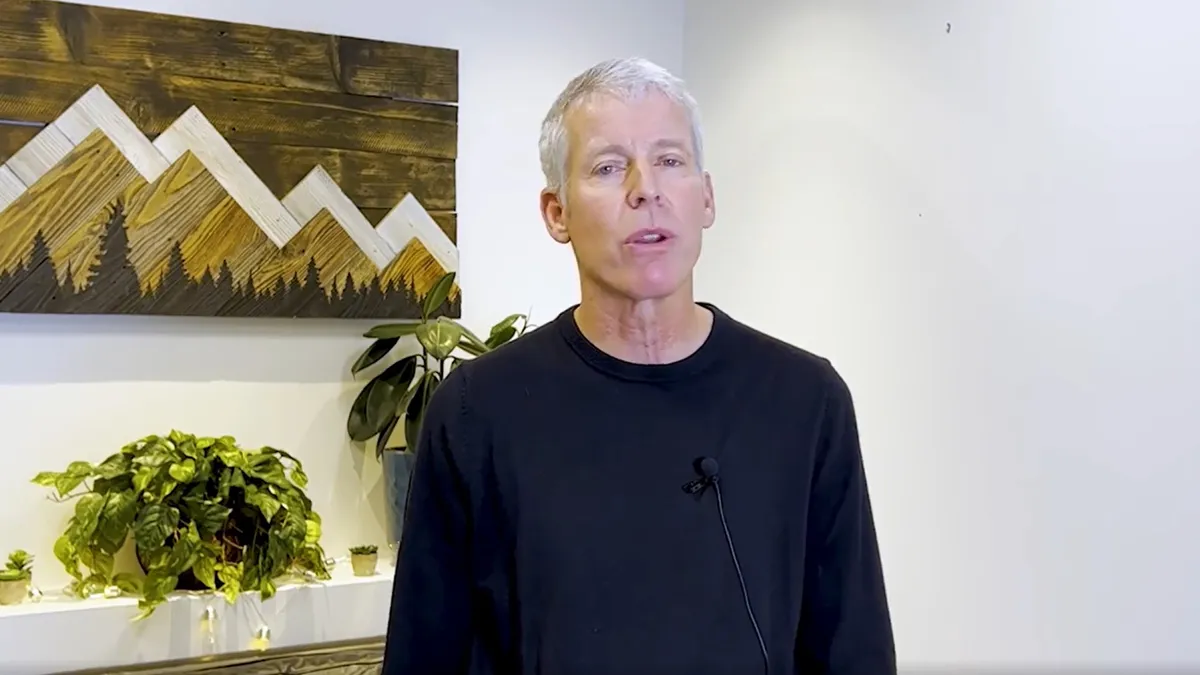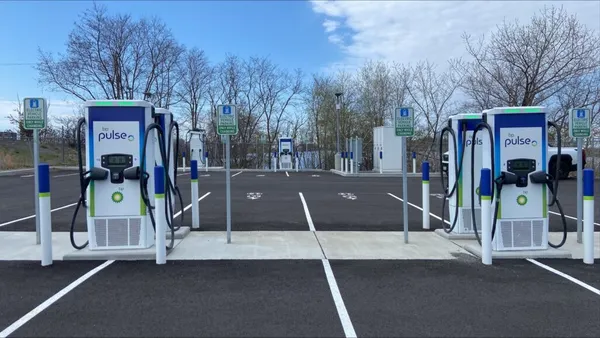Dive Brief:
- President-elect Donald Trump on Saturday announced that he is nominating oil services executive Chris Wright to head the U.S. Department of Energy. The move has sparked concern among environmental advocates, Utility Dive reported recently.
- If confirmed by the U.S. Senate, Wright would succeed Secretary Jennifer Granholm, who expressed hope at the COP29 U.N. Climate Change Conference that electric vehicle tax credits and other energy transition measures would remain intact under the new administration.
- The appointment of Wright, currently CEO of Liberty Energy, could mark a shift toward fossil fuel prioritization and expanded energy access, but legally protected energy efficiency standards set by DOE may remain unaffected, experts say.
Dive Insight:
Wright is largely expected to defend fossil fuel use and boost oil and gas production while finding ways to increase electricity generation as demand rises, according to an S&P Global report released Nov. 17. In a LinkedIn video last year, Wright dismissed the notion of a climate crisis, advocated for broad energy availability, called the term carbon pollution “outrageous,” and opined that “there’s no such thing as clean energy or dirty energy.”
Wright’s stance isn’t necessarily anti-climate but focused on broad energy availability, according to Jennifer Nuckles, CEO of R-Zero, which develops high-efficiency HVAC filtration systems and smart building technologies such as lighting controls and tools for energy optimization in commercial properties. “He is really an advocate for affordable access to all energy sources,” Nuckles said in an interview.
Trump also nominated North Dakota Gov. Doug Burgum to lead the Department of Interior and run a National Energy Council the president-elect plans to create, which will consist of federal departments and agencies involved with permitting, regulating, producing, generating, distributing and transporting all forms of energy. “This Council will oversee the path to U.S. energy dominance by cutting red tape, enhance private sector investments across all sectors of the economy and by focusing on innovation over longstanding, but totally unnecessary, regulation,” Trump said in a statement.
Trump’s appointments emphasize private-public collaboration that can address the challenge of energy demand increases stemming from the rise of artificial intelligence and data center expansion, Nuckles noted. “What’s really interesting about the Trump appointments currently — Chris [Wright] as well as Doug Burgum — is that both are really focused on using private knowledge and expertise to advance energy development in all forms,” she said.
The president-elect’s second-term plan, outlined in Agenda 47, emphasizes reversing Biden administration policies that support renewable energy, electrification and energy efficiency. Project 2025, developed by the Heritage Foundation — a conservative think tank, with the input of many former and possibly future Trump administration officials — calls for a repeal of the Inflation Reduction Act and recommends dismantling or reforming many DOE offices.
Nuckles said landlords, portfolio owners and operators of large commercial buildings aren’t overly reliant on government incentives like clean energy tax credits to operate or improve their buildings. “I think many of them are looking to increase the value of their buildings, and there [are] ways to do that by having the most innovative, modern buildings. Where you don’t sacrifice tenant comfort, but … have the most efficiently run buildings that are also places people [would] want to go to.”
“You juxtapose that with the ability to save costs in these buildings, and there’s where you really [see] the benefit, going forward,” Nuckles added.
Commercial building operators often rely on DOE’s energy efficiency standards for appliances and equipment. Earlier this year, the department finalized four appliance energy efficiency rules, including new requirements for commercial rooftop heating and cooling units, circulator pumps and miscellaneous refrigeration appliances. DOE estimated that these rules would save nearly $1.9 billion a year on both home and business utility bills.
When asked whether these standards could change under Wright’s leadership, Andrew deLaski, executive director of the Appliance Standards Awareness Project, said the law “fortunately prohibits DOE” from weakening or eliminating standards that are in effect or have been finalized. “Energy efficiency standards for appliances and equipment help reduce utility costs for building owners month after month,” he said in an interview. “Any effort to harm standards would have to resort to uncertain legal gimmicks and would only potentially raise operating costs for building owners.”
On Tuesday, Sen. Ron Wyden, D-Ore., issued a statement critical of Trump’s nominations of Wright and Burgum. “These nominees were selected with the goal of taking our country back in time and rolling back climate progress,” Wyden said. He said Trump’s agenda would destroy jobs and shut down renewable energy projects all over the country, adding that “as a senior member of the U.S. Senate Energy and Natural Resources Committee, I will watchdog the Trump administration’s every move.”











